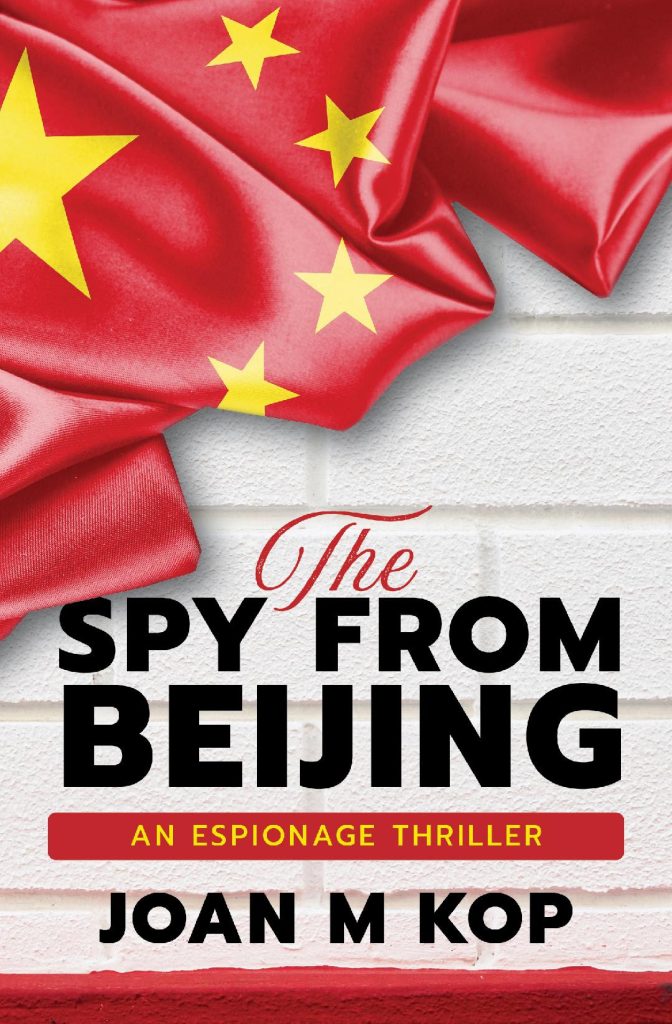GREAT NEWS!!
My New Year’s resolution every year for the past 25 years has been to get a literary agent and a major publisher. That goal seemed pretty far-fetched for a girl from the small town of Cottonwood, Idaho. Especially, since the odds of getting a literary agent are 1 in 800 and the odds of getting published traditionally are 1 in 17,000. Over those 25 years, I got enough rejection letters to wallpaper my 800 sq. ft. condo. What changed is that I quit my job in early 2020, so I had more time to read and read 15 of Daniel Silva’s spy thrillers during the pandemic. I also received critique and continual encouragement from my good friend, Dave Kamakaris, who likes to read spy thrillers.
Holy crap! My dream might actually come true. I signed a literary contract on December 19 with an agent at 3ibooks for my book The Spy from Beijing. The agent is now shopping my book to major publishing houses. Fingers crossed. The cover may change but I am particularly fond of the cover my book designer created.
I’ve received several 5-star professional reviews, including this one from The Book Review Directory:
When flight attendant Jenny Chu is offered a role in the FBI by undercover agent Dave Kamakaris, she jumps at the chance and is assigned to a case involving Chinese spies working at Boeing Engineering.
However, there is a larger threat concerning harvesting American DNA data by the Chinese using COVID testing sites and biotech companies. Through the FBI’s investigation, Jenny meets Chinese defector, Yìchén Zhang, with who she has far more in common than either of them realizes.
Set against the backdrop of the early days of the Covid pandemic in 2020 and alternating mainly between Seattle and China, The Spy from Beijing boasts some solid research, especially into the Chinese intelligence service, the Ministry of State Security, and its methods.
Chapters are relatively short, snappy, and alternate between Jenny and Yìchén’s third-person perspectives until both protagonists begin to encroach upon each other’s worlds shortly before halfway through.
Kop is an ambitious writer who is not afraid to make brave, decisive decisions with her characters and plot. After setting the scene for both Jenny and Yìchén in the first two chapters, the third takes a dramatic turn for Jenny which is mirrored for Yìchén in the fourth.
In the early stages, Yìchén’s narrative is the strongest. The reader’s curiosity is immediately piqued, unsure at this point which choices Yìchén will make and what will be the consequences. The scene between him and his father, Bohai, as they play the board game Weiqi, is loaded with unease and poignancy.
In addition to Kop’s familiarity with the MSS, she has a well-developed and interesting knowledge of China’s geography, customs, and socio-political climate which adds credibility and dimension to Yìchén’s trajectory as a defector.
Jenny is a contrasting character. While she has highly developed sensibilities, she is also able to absorb and deflect a series of traumatic, life-altering events. This emotional detachment often seems misplaced, rendering her slightly mechanical.
Nonetheless, the reader is made aware of her abandonment and trust issues as the novel progresses, which explains some of her apathetic responses. Her relationship with Dave adds a gentle gloss of romance, and he is capably utilized to drive several plotlines forward.
Indeed, through the central narrative, Kop spins off various inventive tangents. All maintain continuity and Kop showcases some highly creative twists and unexpected angles with most of the characters falling under suspicion of duplicity or dishonesty.
Jenny’s connection with Yìchén is fairly obvious to the reader, but that does not lessen the impact of the eventual reveal. However, the nature of the blackmail that Yìchén orchestrates against acquaintance John, and work colleague Carmen, is unpleasant and possibly unnecessary, especially as Yìchén appears to escape appropriate censure.
Throughout, Kop’s prose is literal and straightforward with a lightness of tone, making The Spy from Beijing a fast, accessible read despite navigating some complex issues. Conversely, however, this easy fluidity does occasionally lend the weightier parts of the story a lack of conviction and depth.
Notwithstanding, Kop writes with full throttle as the reader is hurtled around toward the finale, throwing a number of surprising, definitive plot maneuvers. A lot is packed in these final chapters with the novel flickering competently between intelligence thriller and family mystery.
The conclusion is relatively abrupt but broadly satisfying. Some elements are left open-ended which does not detract from the outcome but gives the impression Kop might be toying with making the novel the first in a series.
Boasting a twisty tale and a feisty, engaging protagonist, The Spy from Beijing is an entertaining and imaginative novel, full of unusual intrigue and sharp, contemporary relevance.
Until next time…

